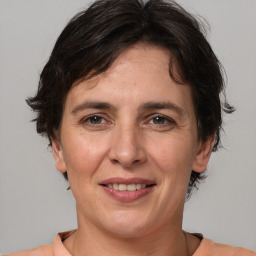This sample will let you know about:
- What is Circulatory system
- What is Digestive system
QUESTION 1
|
Cells/Tissue |
Function |
Cells/Tissue Types
Cells/Tissue functions
Animal cells
Animal cell are eukaryotic cells that are made of plasma membrane and includes membrane-bound nucleus and organelles. Cell wall is absent in animal cells which includes of nucleus, cell membrane, cytoplasm, mitochondria, ribosomes, lysosomes, vacuoles, centrosome, endoplasmic reticulum, golgi apparatus.
Skin cells
It has main function to protect animal. Skin protects from cold, germs, sun rays and many more. It also supports in regulating body temperature which help to feel sensations like pain or heat. It is made up of three layer that include epidermis, hypodermis and keratinocytes (Zhang and et. al., 2021).
Blood cells
It has two types named white blood cells and red blood cells. Red blood cells carry oxygen to body parts from lungs and collect carbon dioxide. White blood cells help to battle infections and play important part in immune system.
Nerve cells
It is also known as neurons and primary class of nervous system. It has function to send chemical and electric signal to receive and send messages from brain. There are about 86 billion neurons in brain (Animal Cell, (2020)).
Muscle cells
It is also known as myocyte and contraction as primary function. Muscle cells use motor proteins which help to shorten length as directed by neurons and get relaxed when there are no signal form neurons. Muscle cells have different types that include cardiac, skeletal and smooth.
Fat cells
It is also known as adipose cells which store lipids and fats which provide energy when required. This energy has the form of triglycerides. Fat cells also help in responding and sensing change in energy level.
Animal tissue
Multicellular, complex animal have different type of primary tissues that includes epithelial, connective, muscles and nervous.
Epithelial tissues
It covers outside of organs in body and line organs lumens in multiple or single layer of cells. Epithelia composed of cells of single layer which called as simple epithelia. Here, epithelial tissues composed of multiple layers called stratified epithelia. Different types of epithelial tissues include squamous, cuboidal, columnar and transitional (Ruterbusch and et. al., 2020).
· Squamous Epithelia facilitate diffusion in tissues like exchanges in nutrients and gas exchange in lungs and waste at blood capillaries.
· Cuboidal Epithelia help in excretion, observation and secretion.
· Columnar epithelial are most commonly in single layer arrangement. They absorb material from digestive tract lumen and prepare it enter in body using lymphatic and circulatory system.
· Transitional epithelia appear in urinary system within ureter and bladder. It helps to unfolds and expands bladder and goes from thick to thin during expanding.
Connective tissues
It contributes in numerous body function that includes support cless and organs, transporting wastes and nutrients, storing fat, defending against pathogens and repair damaged tissues (Andrade and et. al., 2021).
· Connective tissues proper that has role to provide protection and support to body.
· Vascular tissues have the role to transport material in body.
· Skeletal tissues have role to support body and provide proper support form and shape.
Muscle tissues
It has different function that include helping in locomotion and movement. It also supports bones and other structure and responsible for parturition and peristalsis.
· Cardiac muscle tissues help in blood circulation and make heart pumping.
· Smooth muscle tissue helps in peristalsis along with other involuntary function in body.
· Skeletal muscle tissues provide better support and helps in movement along with maintaining homeostatic (Animal Tissue - Types, Structure, (2022)).
Nervous tissue
It develops from ectoderm of embryo. It is able to transmit and initiate nerve impulse. They respond towards stimuli and transmit stimulus very quickly through body.
QUESTION 2
Circulatory system includes heart and blood vessels which moves blood throughout body. This system enables tissues to get nutrients and oxygen and enables to get rid of waste products. This provides a medium to transport water, waster, nutrients, gas exchange within animals. They have the function to circulate oxygen and remove carbon dioxide and provide cells with nutrients. They also help to provide protection to body against disease and infection. It also includes Science Research Topics clotting that stops bleeding after injury (Circulatory System, (2020)).
There is key difference in different animals that include single and double circulation system. Here, single circulation system can be found in typical fish species that where red demonstrate oxygen-rich blood and blue demonstrate oxygen-deficient blood. Double circulatory system includes birds, humans and mammals with four-chambered heart. Amphibians have three chambered heart that include one ventricle and two atria.
Respiratory system includes network of tissue and organs that help in breathing process which include lungs, airways and blood vessels. Respiratory system also helps to talk and smell, warms air to maintain body temperature with atmosphere and improve humidity level to that body requires. It also delivers oxygen to body cells and remove waste gases through exhale process and protect airway form harmful irritants or substances (Respiratory System, (2020)).
Key difference include major respiratory structure in vertebrates like Example of Assignment integumentary, gills, lungs. Here, trachea includes the respiratory organ that is hallmark of insects which is made of branching tubes that delivers oxygen remove carbon dioxide from tissue.
Digestive system breaks food in nutrients like fats, carbohydrate and proteins to allow them to absorbed in bloodstream to produce growth, energy and repair. It converts food like amino acids, glucose or fatty acids to observed in bloodstream from small intestine to reach each cell in body (Digestive system, (2021)).
There is key difference in different animal digestive system that includes different type of digestive systems that include different food they like to consume. Here, vertebrate digestive system includes complex digestive system to adapt to dietary needs that include stomach.
Nervous system enables body part to communicate with each other. It uses both electrical along with chemical means to receive and send messages in body. It helps to control body part, programme spinal cord reflexes, memory and learning including voluntary control of body movement (Nervous System: Anatomy and Function, (2021)).
There is key difference between vertebrate and invertebrate's nervous system that include invertebrates include nerved cords located in ventrally whereas vertebrate include spinal cord dorsally.
Reproductive system is about making babies where female reproductive system is specialised towards it. It includes the function of producing gametes called eggs, secreted sex hormones like oestrogen and provide fertilisation site to give birth (Female Reproductive System, (2022)).
Viviparous and oviparous are two different animal group divided on the basis of fertilisation. Here, oviparous include egg-laying animals and have either internal or external fertilisation and nutrients provided by egg yolk. These may include hens, insects, amphibians, fish and many more. Viviparous include animals that give birth to young ones and fertilisation is internal and nutrients provided by placenta of mothers. These may include humans, cats, dogs and horses and others (What is Reproduction? (2020)).
QUESTION 3
Principle of genetics include unit of inheritance that are directly responsible for on character. This include two genes for each trait that comes from male and other from female.
Animal has different type of cell division that includes mitosis and meiosis. Here, mitosis is about process that contribute in making new body cells and meiosis include the cell division which create sperm or egg cells (Jiang and et. al., 2019). Mitosis refers to fundamental process for life where duplications occurs that include chromosomes and splits to form two daughter cells. It is a critical process that are carefully controlled through certain genes. There is risk of health problem like cancer when this mitosis not regulates in correct way (How do cells divide? (2021)). Meiosis is another cell division which ensure same number of chromosomes in every generation. This include two steps process where chromosome is divided in half and form egg or sperm cells. There are different stages of mitosis which altogether known as mitotic (M) phase of animal cell cycle (Summers and et. al., 2020). This is the division of mother cells that has two genetically identical cell. here, meiosis may result to four haploid cells that undergo to DNA replication through cell division. Cell division in animal cell includes initiation process where it does not include hormonal action and cell carves separation and indentation itself. Centrosome play an important role in Assignment help spindle formation where aster form on both ends of spindle. Here, meiosis includes the sex gametes that produced directly. Mitosis produces genetically identical daughter cells (Difference between Plant and Animal Cell Division, (2021)).
There are two type of breeding in animal which include inbreeding and out breeding. Here, inbreeding include breeding within related animal's male and female whereas, out breeding includes unrelated animals as male and female.
Inbreeding is intentionally practiced to create genetic uniformity to produce stocks from crossing. Inbreeding type include close breeding and line breeding. Here, close breeding includes most intensive breeding that animals are closely related and have one common ancestor. Line breeding include mating animals that distantly related and can be traced back to a common ancestor. It includes genetic purity among animals of progeny generations (Hou and et. al., 2022).
Out breeding include breeding between unrelated animals which have two types named cross breeding and grading up. Here, crossbreeding include mating of animals in different breeds and known as hybrid vigor or heterosis whereas, grading up of animals in different breeds that help to improved pure breed for more generations to attain improved breed. Here, through fifth generation they achieve the purebred levels (Animal breeding, (2023)).
QUESTION 4
Dogs have different body parts or areas that have different key feature which is going to discussed further. It includes-
|
Head up on dog parts |
|
|
Nose |
They are cold and wet and get stuck when does not required. |
|
Muzzle |
Comprised of upper and lower jaws. |
|
Forehead (braincase) |
Is the portion of head goes form stop to eyebrows to pack skull. |
|
Occiput |
It is a prominent feature of some dogs. |
|
Ears |
Different dogs have different ears includes dropped, pricked, button and cropped. Used to hear and communicate |
|
Eyes |
They are used to see things. |
|
Eyebrows |
They are simply brown and used during communicating with humans |
|
Whiskers |
They provide sensor feeling |
|
Flews |
It is another name of dogs lips and help in controlling body temperature |
|
Cheek |
They are beside muzzle |
|
Ruffling neck and doggy shoulders |
|
|
Nape |
It is base of skull in back of head |
|
Throat |
It is beneath the jaws |
|
Crest |
It start form nape and ends at withers and work as part of hunting strategy (Dog Anatomy from Head to Tail, (2021)). |
|
Neck |
It is pretty self-explanatory that runs from head to shoulders. |
|
Shoulder |
It wither elbow and enable to walk and run with ease. |
|
Withers |
It provide highest point to dog's back. |
|
Baring canine back and chest |
|
|
Prosternum |
Here, bone ties the rib cage together. |
|
Chest |
It is entire rib cage of dogs and provide protection to vital organs |
|
Back |
It is back of loin that point from shoulders to end of rib cage and helps in strength gaining and carrying weight and protection of spinal cord. |
|
Flank |
Side of dogs between end of chest and rear leg. |
|
Belly |
Ned of rib cage to tail and prevent urinary messes from male dogs. |
|
Loin |
It is back between end of rib cage and beginning of pelvic bone. |
|
Forelegs and hind legs |
|
|
Upper arm |
It is right below shoulder and comprised of humours bone. |
|
Elbow |
It is dog's leg located below the chest and back of foreleg and allow dog to run, play and bend. |
|
Forearm |
It is comprised of ulna and radius and helps in weight bearing. |
|
Wrist |
Lower joint below elbow and provide protection to legs and work as breaking system. |
|
Carpals |
It is bone on hands and feet and provides ability to move. |
|
Paw |
It helps to provide better surface interaction and help in walking, running, stretching. |
|
Toes |
It helps to wiggle more easily and support dog weight and their joints |
|
Dewclaws |
Vestiges of thumbs. |
|
Claws |
End of each toe and last bone of toes and provide support in grip to hold objects. |
|
Upper thigh |
Provide strength to walk and run. |
|
Knee |
It provide flexibility in running and walking and observe shock during movements |
|
Lower thigh |
It is part of hind leg |
|
Hock |
It corresponds with ankle. |
|
Bringing up to rear |
|
|
Tail |
To get balance, move and communicate. |
REFERENCES
Books and Journals
Andrade, P. and Carneiro, M., 2021. Pterin-based pigmentation in animals. Biology Letters, 17(8), p.20210221.
Hou, L., Fu, Y., Zhao, C., Fan, L., Hu, H. and Yin, S., 2022. Ciprofloxacin and enrofloxacin can cause reproductive toxicity via endocrine signaling pathways. Ecotoxicology and Environmental Safety, 244, p.114049.
Jiang, Y., Li, C., Wu, Q., An, P., Huang, L., Wang, J., Chen, C., Chen, X., Zhang, F., Ma, L. and Liu, S., 2019. Iron-dependent histone 3 lysine 9 demethylation controls B cell proliferation and humoral immune responses. Nature communications, 10(1), p.2935.
Ruterbusch, M., Pruner, K.B., Shehata, L. and Pepper, M., 2020. In vivo CD4+ T cell differentiation and function: revisiting the Th3/Th2 paradigm. Annual review of immunology, 38, pp.705-725.
Summers, K.M., Bush, S.J., Wu, C., Su, A.I., Muriuki, C., Clark, E.L., Finlayson, H.A., Eory, L., Waddell, L.A., Talbot, R. and Archibald, A.L., 2020. Functional annotation of the transcriptome of the pig, Sus scrofa, based upon network analysis of an RNAseq transcriptional atlas. Frontiers in genetics, 10, p.1355.
Zhang, X., Li, Z., Yang, P., Duan, G., Liu, X., Gu, Z. and Li, Y., 2021. Polyphenol scaffolds in tissue engineering. Materials Horizons, 8(1), pp.145-167.
Read More- Managing a Successful Business Project - Marks & Spencer





















